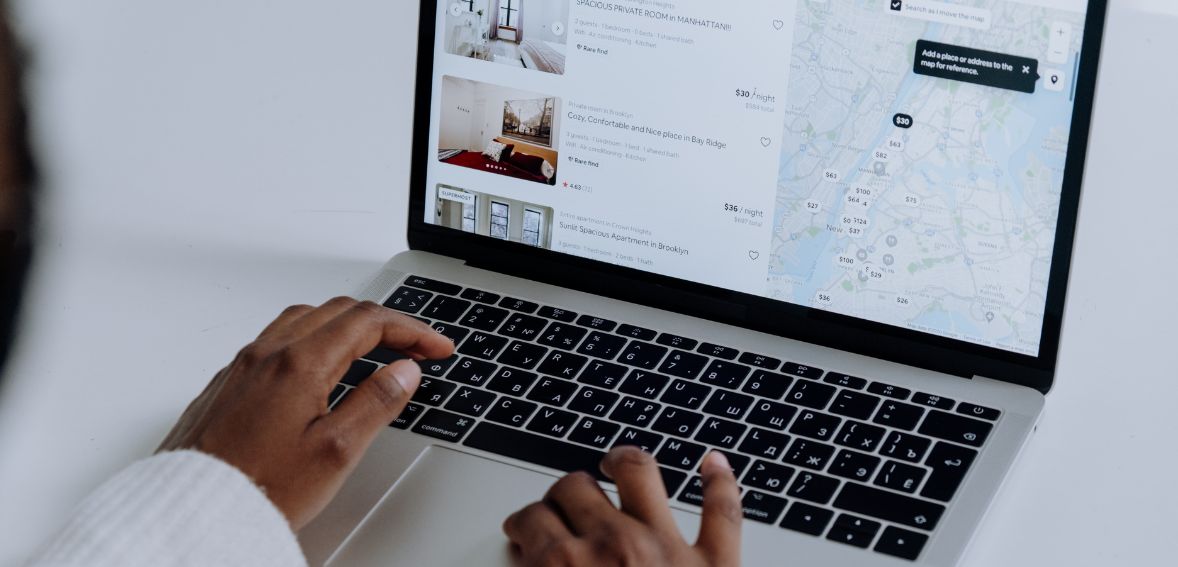
by Inez Kim July 12, 2024
In the fast-paced and competitive landscape of the rental market, Property Management Systems (PMS) have emerged as vital assets for landlords and property managers seeking to maximize the efficiency and profitability of their properties. These systems are more than just digital tools. They are comprehensive solutions that simplify complex processes, enhance tenant relationships, and improve financial outcomes. By automating tasks that traditionally required extensive manual effort, a Property Management System helps significantly reduce operational overhead while ensuring that every aspect of property management is addressed with precision and efficiency.
This article aims to provide an in-depth exploration of Property Management Systems, offering a clear understanding of what these systems contain and the myriad ways they can transform the management of rental properties. We will delve into the essential features that define a robust PMS.
In This Article
ToggleWhat Is a Property Management System?

A Property Management System (PMS) is a sophisticated software application designed to assist property managers and landlords in efficiently managing their real estate portfolios, which may include residential, commercial, and vacation properties. The primary aim of a PMS is to streamline the vast array of management tasks by centralizing all property-related data into a single, easily accessible platform. This integration allows for the automation of daily operations, such as rent collection, lease renewals, and maintenance scheduling, significantly enhancing operational efficiency and reducing the likelihood of errors.
Additionally, a PMS organizes all property-related data—such as tenant information, lease agreements, and maintenance requests—in one centralized location. This reduces the need for physical paperwork and makes it easier for managers to access and update information quickly.
And Routine tasks like rent collection, lease renewals, and service reminders can be automated with a PMS. This automation helps in reducing the likelihood of human errors and frees up time for property managers to focus on other critical aspects of property management, such as tenant relations and property marketing. By transforming traditional property management methods into a more efficient, technology-driven process, a PMS plays a crucial role in modern real estate management, ensuring that both routine and complex tasks are handled more effectively.
Essential Features of a Property Management System
To effectively manage properties in a dynamic and demanding market, a robust PMS must offer a variety of key features. Here’s a breakdown of the essential features that a top-tier property management system should have:
1. Marketing Support
A robust PMS integrates practical marketing tools to enhance property visibility and attract potential tenants. These tools facilitate the advertisement of vacancies across various platforms, such as rental listing websites and social media, thereby broadening the audience’s reach.
Furthermore, a good PMS enables the creation and distribution of promotional materials, such as flyers and emails, designed to capture the interest of prospective tenants. By leveraging these marketing capabilities, property managers can significantly reduce vacancy rates, ensuring a steady rental income stream.
2. Accounting & Revenue Management
Financial management is a cornerstone of successful property management. A comprehensive PMS offers tools designed for tracking rents, managing expenses, and preparing detailed financial reports.
These tools ensure that all financial transactions are accurately recorded and easily accessible, which is vital for financial analysis and decision-making. By maintaining meticulous financial records and automating routine financial tasks, a PMS helps property managers ensure their real estate investments’ profitability and financial health.
3. Streamlined Communications
Efficient communication is critical in property management, impacting everything from tenant satisfaction to the speed of issue resolution. A PMS with advanced communication features enables seamless interaction between property managers, tenants, staff, and service providers.
Whether addressing maintenance requests, resolving disputes, or sending out notices, having a centralized communication hub helps maintain transparent and prompt communication. This feature not only saves time but also helps build strong relationships with tenants and team members.
4. Online Payment Processing
In today’s digital age, convenience is key. An effective PMS offers online payment processing capabilities, allowing tenants to pay their rent and other fees through secure online platforms. This feature eliminates the need for physical checks or cash transactions, leading to faster processing times and fewer late payments.
Online payment systems benefit both tenants and property managers by providing a reliable, quick, and traceable way to handle financial transactions.
5. Tenant Portal
A tenant portal is an integral feature of a modern PMS, designed to enhance tenant engagement and satisfaction. Through the portal, tenants can easily access lease agreements, make rent payments, submit maintenance requests, and communicate directly with property management.
This level of accessibility and self-service significantly enhances the tenant experience, fostering greater satisfaction and retention. Additionally, it reduces the administrative burden on property managers by automating many tenant-related processes.
6. Maintenance Management
Effective maintenance management within a PMS ensures that all tenant maintenance requests are organized and tracked efficiently. This feature allows for the scheduling of timely repairs and routine property upkeep, which is crucial for preserving the property’s value and operational integrity.
By systematically addressing maintenance issues, property managers can maintain high property condition standards, which keeps tenants satisfied and less likely to move elsewhere due to unresolved issues. This proactive approach to maintenance not only extends the lifespan of the property but also helps in fostering a positive landlord-tenant relationship.
7. Compliance Management
Property management is heavily regulated, and staying compliant with local, state, and federal laws is essential to avoid legal issues and penalties. A PMS with compliance management features helps property managers keep abreast of the latest regulations and ensure all practices adhere to these laws.
This may include managing lease agreements according to legal standards, adhering to safety regulations, and properly handling tenant deposits and evictions. By automating compliance tasks, a PMS can significantly reduce non-compliance risk and the associated legal repercussions.
8. Sophisticated Data Security
In the era of digital information, safeguarding sensitive data related to properties, tenants, and financial transactions is paramount. A PMS with advanced security protocols protects this information from unauthorized access and cyber threats. Features such as data encryption, secure user authentication, and regular security audits are essential to maintaining the confidentiality and integrity of data.
Implementing stringent security measures within a PMS protects the business from potential data breaches and builds trust with tenants who expect their personal and financial information to be handled responsibly.
9. Tenant Screening
A reliable tenant is foundational to a successful rental property business. A PMS with integrated tenant screening tools aids in evaluating potential tenants by checking their credit scores, rental history, and background information.
This screening process ensures that property managers select tenants most likely to pay rent on time, maintain the property well, and adhere to lease terms. By minimizing the risk of renting to problematic tenants, property managers can ensure more stable occupancy rates and reduce turnover costs.
10. Automated Tasks and Procedures
Automation in a PMS transforms the efficiency with which property management operations are conducted. Automating routine tasks—such as sending out rent reminders, updating financial ledgers, and generating maintenance or financial reports—can save significant time and reduce errors associated with manual handling.
This streamlines administrative duties and allows property managers to focus on more strategic tasks such as tenant relations and property improvements. Automation ensures consistency and accuracy in management practices, enhancing overall productivity and reliability in property management.
Evaluating Property Management System

Choosing the right PMS requires a careful evaluation based on several criteria. Here’s how you can assess the various systems available:
Marketing Support
A property management system with robust marketing support helps bridge the gap between available properties and potential tenants. This feature should enable property managers to automatically post vacancies on multiple rental platforms, thereby increasing visibility. It also assists in creating and distributing promotional materials, such as email campaigns or digital brochures.
By tapping into diverse advertising channels, a PMS can significantly reduce vacancy rates by ensuring a wider audience is reached more efficiently.
Accounting & Revenue Management
The backbone of any property management business is its ability to handle financial operations effectively. A PMS with strong accounting and revenue management features includes tools for tracking rent payments, managing invoices, and monitoring expenses. It also facilitates the preparation of detailed financial reports that are crucial for analyzing business performance.
This feature ensures accuracy and transparency in financial dealings, helping property managers maintain profitability and make informed decisions based on financial data.
Streamlined Communications
Effective communication is key in property management, affecting everything from tenant satisfaction to operational efficiency. A PMS with streamlined communication features allows property managers to send and receive messages directly from tenants, staff, and service providers within the system.
This not only speeds up the resolution of issues but also maintains a documented history of all communications, which can be invaluable for dispute resolution and regulatory compliance.
Online Payment Processing
Integrating online payment processing in a PMS simplifies how tenants can fulfill their financial obligations. By allowing tenants to pay rent and other fees online, this feature enhances convenience, reduces the time spent on manual processing, and decreases the likelihood of late payments.
Moreover, it provides a secure transaction platform, essential for maintaining trust and professionalism in the property management business.
Tenant Portal
A tenant portal is a dedicated online space where tenants can manage various aspects of their rental experience. This feature should allow tenants to view and download lease agreements, pay rent, submit maintenance requests, and communicate directly with property managers.
A tenant portal increases overall satisfaction and encourages long-term retention by providing tenants with easy access to necessary information and services. This tool not only empowers tenants by giving them control over their rental interactions but also streamlines property managers’ management tasks.
Maintenance Management
Effective maintenance management within a property management system ensures that all properties are kept in excellent condition, directly influencing tenant satisfaction and property value.
This feature allows property managers to organize, track, and prioritize tenant maintenance requests, schedule repairs, and conduct regular inspections. By systematically addressing maintenance issues and documenting the upkeep, a PMS helps prolong the property’s lifespan and ensures that tenants have a safe and pleasant living environment.
Compliance Management
Compliance management is crucial for operating within the legal frameworks set by local, state, and federal regulations. A PMS with robust compliance management features helps property managers stay updated on new laws and regulations, manage lease agreements according to legal standards, and ensure that all practices are compliant.
This protects the management firm from legal penalties and reassures tenants that their residence is managed professionally and lawfully.
Sophisticated Data Security
In an era where data breaches are increasingly common, ensuring the security of sensitive information is paramount.
A property management system must include advanced data security protocols such as encryption, secure data storage, and multi-factor authentication. These measures protect information related to properties, tenants, and financial transactions from unauthorized access and cyber threats, maintaining confidentiality and integrity of the data.
Tenant Screening
Tenant screening is a critical feature that aids in the selection of reliable and qualified tenants. By integrating screening tools, a PMS can automate the process of checking a potential tenant’s credit score, rental history, and background.
This not only streamlines the tenant acquisition process but also minimizes risks associated with non-payment and property damage, ensuring a more stable and reliable tenant base.
Automated Tasks and Procedures
Automation of routine tasks and procedures in a property management system enhances efficiency and accuracy. This feature can automate sending rent reminders, updating financial ledgers, and generating performance reports, among other tasks. By reducing the manual workload, automation lowers the risk of human error and allows property managers to focus more on strategic tasks and tenant engagement, ultimately improving operational efficiency and service quality.
- AI Integration is a Must
Integrating artificial intelligence (AI) into a property management system can significantly transform the efficiency and effectiveness of property management. AI technologies enable the automation of complex decision-making processes, which can range from optimizing maintenance schedules based on predictive analytics to assessing potential tenant applications more accurately.
Furthermore, AI can provide insights into tenant behaviors and preferences, aiding in developing strategies to increase tenant retention. Additionally, AI can be utilized for dynamic pricing, adjusting rental rates based on market conditions and occupancy levels. The incorporation of AI into a PMS not only streamlines operations but also supports more informed, data-driven decisions that enhance overall property management.
- Integration Capabilities with Third-Party Applications
For a property management system to truly be effective, it must possess the capability to integrate seamlessly with other essential software tools used within the business. This includes CRM systems for managing customer relationships, accounting software for financial tracking, and building management systems for operational oversight.
Integration capabilities enable a unified approach to managing all aspects of property management, eliminating the need to switch between different applications or manually transfer data. This not only boosts productivity by reducing time spent on repetitive tasks but also minimizes the chances of errors associated with manual data entry. Effective integration ensures that the property management system serves as a central hub, streamlining processes and ensuring consistency across various management tasks.
Choosing the right property management system is a strategic decision that can significantly influence the efficiency and profitability of your rental business. By understanding the essential features and carefully evaluating each option against your business needs, you can select a PMS that not only meets your current requirements but also supports your future growth.
Conclusion
Selecting the best Property Management System (PMS) is a strategic decision that can greatly enhance the efficiency and profitability of your rental business. A robust PMS simplifies complex processes, improves tenant relationships, and optimizes financial management. Automating routine tasks reduces operational overhead and minimizes errors, allowing property managers to focus on more critical aspects of their work.
Essential features like marketing support, accounting tools, streamlined communication, online payment processing, tenant portals, maintenance management, compliance oversight, data security, tenant screening, and automation are vital in a top-tier PMS. Evaluating these features against your specific business needs ensures that you choose a system that addresses your current requirements and scales with your future growth. Investing in the right PMS is crucial for staying competitive and achieving long-term success in the dynamic rental market.
Frequently Asked Questions
Integrating AI into a PMS allows for predictive maintenance, smart allocation of resources, and real-time decision-making, significantly boosting operational efficiency by automating routine tasks and optimizing asset management.
Essential security features include multi-factor authentication, end-to-end encryption, and regular security audits. These elements safeguard sensitive information from unauthorized access and potential data breaches.
A robust PMS facilitates streamlined communication through automated notifications, a centralized communication portal, and mobile compatibility, ensuring timely and consistent interactions between property managers, tenants, and owners.
Scalability is crucial as it ensures the PMS can handle increasing amounts of data and transactions, integrate new properties seamlessly, and support evolving business needs without compromising performance or user experience.